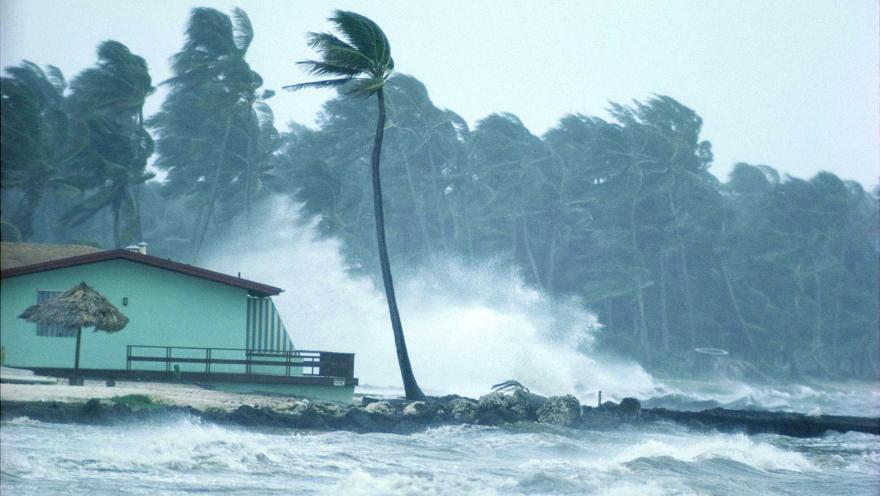Emergencies and disasters can strike quickly and without warning. For the thousands of Americans living with ALS, emergencies such as fires, floods and acts of nature present a real challenge. June 1 marks the official start of hurricane season and with the coronavirus pandemic, it’s more important than ever to make sure you are prepared.
It is critical that people with ALS and their family members be proactive and make plans to protect themselves in the event of a disaster. Making the conscious decision to be prepared takes work, but it is worth it. The more you do, the more confident you will be that you can protect yourself when the time comes.
Some ideas and things to think about to help keep you and your family safe:
- People living with ALS using special equipment in home should contact their local electric service operator to register the household as having an occupant requiring electricity for medical devices. This may include providing documentation of disability. This helps power companies prioritize outage restoration in times of crisis.
- Contact your local or county emergency preparedness office. Ideally, families with significant mobility or respiratory challenges have already registered with their local or county emergency preparedness office, indicating their specific unique needs in the event of evacuation or the need to proactively move to an adequate shelter. Regular shelters may not have the electrical service or additional staff required for people using power wheelchairs or any medical equipment requiring electricity, and coronavirus may have altered your community’s plans. The Red Cross is a great resource for finding local shelters in your area.
- Know what kinds of disasters (especially weather/natural disasters) could happen in your area and consider what your environment might look like after one occurs. Sign up for alerts from FEMA or local weather sources. These alerts can be directly texted to a cell phone, a Facebook or Twitter account, or your home phone number.
- List of Your Network – Complete a personal assessment and personal support network of family, friends, relatives, neighbors, roommates and co-workers who could assist you at a moment’s notice. Keep this list handy at all times, including a printed version in case of power loss.
- Emergency Information List – Make an emergency information list so others will know who to call if they find you unconscious, unable to speak, or if they need to help you evacuate quickly.
- Medical Information Packet – This packet allows a person to provide medical information regarding specific issues related to ALS care, and how your issues can most appropriately be addressed. Compile a list that contains the names and numbers of your doctors, your medications, dosage instructions, and any existing conditions. Make note of your adaptive equipment, allergies, and any communication difficulties you may have. It is recommended this be on paper instead of a computer data stick because there may not be electricity to run a computer to retrieve this information.
- Medical Information Pocket “Z” Card – Consider keeping a Medical Information “Z” Card with you that provides a brief summary of critical ALS issues, including a mini-letter board, which can be folded and kept in a wallet. A Medical Information Packet Printable Eye Gaze Board is also helpful to provide rapid access to low tech communication.
- Key Medical Information Mobile App – The Key Medical Information app provides medical personnel with critical information to care for a person with ALS during an emergency. In addition to medical do’s and don’ts, the app provides a communication board and emergency contact fields for users to reference. The app is available in Google Play and the Apple Store and is searchable by “Key Medical Information” or “The ALS Association”.
- Medication Supply: Keep at least a seven-day supply of medications on hand. Ask your doctor or pharmacist what you should do if you cannot immediately get more.
- Identify Evacuation Routes from Your Location: Identify evacuation routes and safe places to go during a disaster. Remember that in the event of a natural disaster you may be under mandatory evacuation. Should this occur and you don’t have accessible transportation, call your local police department and inform them of your situation.
- Disaster Supply Kit: Keep a disaster supply kit, also known as a “go bag,” in your home, car, workplace or anywhere you may spend your time. Include such items as food, water, a first aid kit, letter or picture board, adaptive equipment, and batteries. If you cannot speak, attach a small recorder (like those found on key chains) on the outside of the bag. The recording should say something like “My name is ____. I cannot speak. I communicate by ______. In case of emergency, please call _____.
- Show others how to operate your wheelchair or other assistive devices.
- Keep in mind that during an emergency, you may need to explain to first responders and emergency officials that you need to evacuate and shelter with your family, service animal, caregiver, or personal assistance provider so they can provide the support you need to maintain your health, safety and independence.
- If you cannot verbally communicate, make sure you always have a Rapid Access Communication System in place. This could include a letter board, laser pointer, or other communication system that does not rely on electricity. You can find more information at www.patientprovidercommunication.org.
Finally, be informed. There are various web sites and telephone numbers to help with emergency preparedness and keeping you and your family safe during difficult times. Here are a few to consider:
Prepare for Emergencies Now: Information for People with Disabilities
http://www.ready.gov/sites/default/files/FEMA_Disabilities_R-6_web_june2012.pdf


Join the conversation. Please comment below.